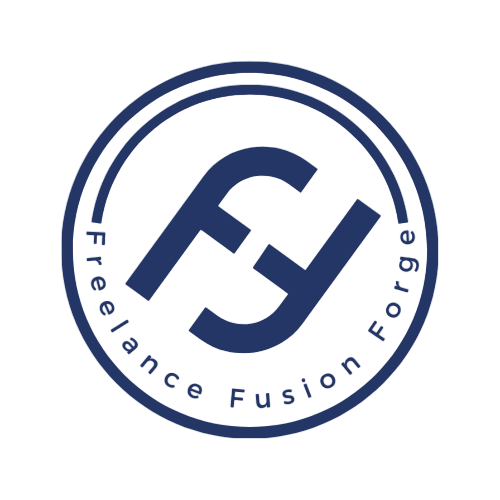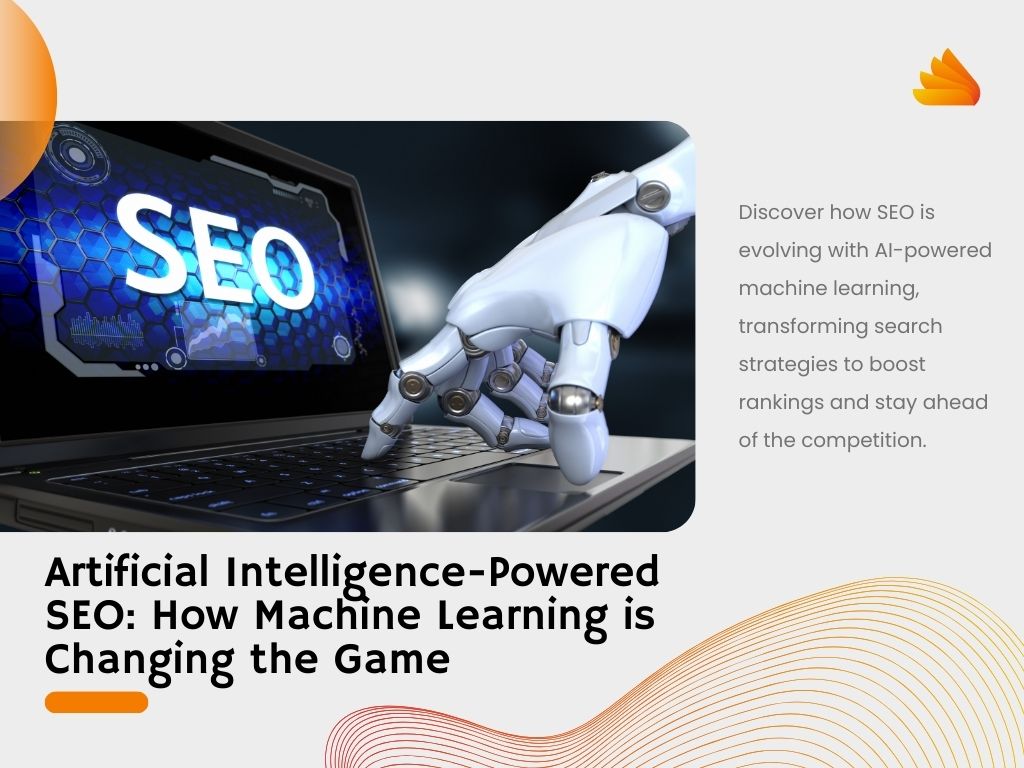Introduction
In the rapidly changing landscape of digital marketing, Artificial Intelligence (AI) in Digital Marketing continues to be a vital strategy for attracting organic traffic to websites. However, traditional SEO strategies that once dominated the landscape are gradually being overshadowed by more advanced, AI-powered techniques. The rise of Artificial Intelligence and machine learning (ML) is reshaping the digital marketing landscape, offering new opportunities for marketers to optimize their websites more effectively. In this blog post, we will explore how AI and machine learning are transforming SEO practices, the benefits they bring, and how businesses can leverage these technologies to stay ahead in the game.
Understanding Artificial Intelligence and Machine Learning in SEO
Before diving into how Artificial Intelligence (AI) in Digital Marketing is revolutionizing SEO, it’s essential to understand what these terms mean.
Artificial Intelligence (AI):
Artificial Intelligence refers to the simulation of human intelligence in machines that are programmed to think, learn, and make decisions like humans. In the context of digital marketing, Artificial Intelligence is used to analyze large datasets, predict trends, and optimize content based on user behavior.
Machine Learning (ML):
A core aspect of Artificial Intelligence, ML enables machines to adapt and evolve by learning from data, continuously improving their accuracy and effectiveness. In SEO, ML is used to analyze search patterns, understand user intent, and make data-driven decisions to improve website ranking.
The Influence of Artificial Intelligence (AI) and Machine Learning on Modern SEO Approaches
Artificial Intelligence and machine learning are changing the way search engines work, and consequently, how SEO strategies are developed and executed. Here are some of the most significant ways in which Artificial Intelligence in Digital Marketing is transforming the industry:
Understanding User Intent:
A key element of successful SEO is grasping the intent behind user searches. Artificial Intelligence-powered algorithms use machine learning to analyze search queries and understand what users are looking for, even when their queries are ambiguous or complex. This shift from keyword-based optimization to intent-based optimization means that SEO strategies must now focus on understanding and meeting user needs rather than simply targeting specific keywords.
Personalization of Search Results:
With the help of Artificial Intelligence, search engines can provide customized search results that reflect a user’s unique behavior, preferences, and location. This personalization means that two users searching for the same query might receive different results based on their search history, social media activity, and other factors. For SEO professionals, this means optimizing content not just for general search queries but also for personalized search experiences.
Content Optimization:
AI-powered tools like Clear scope, Market Muse, and Surfer SEO are revolutionizing content optimization. These tools use machine learning algorithms to analyze top-performing content for specific keywords and provide recommendations for creating content that is more likely to rank well. By analyzing factors such as keyword density, readability, and topic relevance, these tools help marketers create high-quality content that meets both user expectations and search engine requirements.
Voice Search Optimization:
The rise of voice search, powered by AI-driven virtual assistants like Siri, Alexa, and Google Assistant, is another game-changer for Artificial Intelligence (AI) in Digital Marketing. The nature of voice search queries, being longer and more conversational, calls for a distinct strategy in keyword optimization. Machine learning algorithms analyze voice search data to understand natural language patterns and optimize search results accordingly. SEO strategies now need to focus on long-tail keywords and natural language to capture voice search traffic.
Predictive Analysis and Trend Identification:
Artificial Intelligence (AI) and machine learning are excellent at analyzing vast amounts of data to identify patterns and predict trends. In SEO, predictive analysis allows for the anticipation of changes in algorithms, user patterns, and market trends. By leveraging this data, businesses can stay ahead of the curve and adjust their digital marketing strategies proactively rather than reactively.
Automated SEO Tasks:
Artificial Intelligence (AI) is also automating many time-consuming SEO tasks, such as keyword research, backlink analysis, and technical SEO audits. Tools like Ahrefs, SEMrush, and MOZ use AI to streamline these processes, allowing marketers to focus on strategy rather than manual tasks. Automation also reduces the likelihood of human error, leading to more accurate and efficient SEO practices.
Enhanced User Experience (UX):
User experience is becoming a more critical ranking factor for search engines. AI-powered tools analyze user behavior on websites, such as time spent on a page, bounce rates, and click-through rates, to determine how well a site meets user expectations. Websites that provide a better user experience are more likely to rank higher in search results. For SEO professionals, this means optimizing not just for search engines but also for the end-user.
Challenges of AI-Powered SEO
Although AI and machine learning bring substantial advantages to Artificial Intelligence (AI) in Digital Marketing, they also introduce specific challenges:
Keeping Up with Rapid Changes:
The pace at which Artificial Intelligence (AI)and machine learning technologies are evolving can make it difficult for SEO professionals to keep up. Search engines are constantly updating their algorithms to incorporate new Artificial Intelligence (AI) capabilities, meaning that SEO strategies must be continually adapted.
Data Privacy Concerns:
The use of Artificial Intelligence (AI) and machine learning in digital marketing often involves the collection and analysis of vast amounts of user data. This raises concerns about data privacy and compliance with regulations such as GDPR. Businesses must be transparent about how they use data and ensure they are adhering to legal requirements.
Over-Reliance on Automation:
While Artificial Intelligence (AI) can automate many SEO tasks, there is a risk of becoming overly reliant on automation. Human creativity and intuition still play a crucial role in developing effective SEO strategies. It’s important to strike a balance between leveraging AI tools and maintaining a human touch in digital marketing practices.
How to Leverage AI-Powered SEO for Your Business
To make the most of Artificial Intelligence (AI) in Digital Marketing, businesses should consider the following strategies:
Invest in Artificial Intelligence (AI) Tools:
There are numerous Artificial Intelligence (AI)-powered SEO tools available that can help with everything from content optimization to technical SEO. Investing in these tools can save time and improve the effectiveness of your SEO efforts.
Focus on Quality Content:
While Artificial Intelligence (AI) can help optimize content, the quality of the content itself is still paramount. Ensure your content is both informative and engaging, tailored to meet the specific needs of your audience.
Stay Informed:
The digital marketing world is continuously evolving due to advancements in Artificial Intelligence (AI) and machine learning. Keep up with current trends and updates to maintain the effectiveness of your strategies.
Test and Iterate:
Artificial Intelligence (AI)-powered SEO is not a one-size-fits-all solution. It’s important to continually test and iterate on your digital marketing strategies to see what works best for your specific business and audience.
Conclusion
Artificial Intelligence (AI) and machine learning are undoubtedly transforming the digital marketing landscape, offering new opportunities for businesses to optimize their websites and content more effectively. By understanding and leveraging these technologies, businesses can stay ahead of the competition and ensure their online presence remains strong in the ever-evolving digital landscape. However, it’s important to approach AI-powered digital marketing with a balance of technology and human insight, ensuring that the end goal remains providing value to users.
FAQs
What is Artificial Intelligence in Digital Marketing?
Artificial Intelligence (AI) in Digital Marketing refers to the use of artificial intelligence technologies to automate and enhance marketing efforts, such as SEO, content creation, and customer segmentation.
How does Artificial Intelligence improve SEO?
Artificial Intelligence (AI) improves SEO by analyzing vast amounts of data, understanding user intent, and optimizing content. It helps in making data-driven decisions to enhance website rankings.
What are the challenges of using Artificial Intelligence in Digital Marketing?
Challenges include keeping up with rapid technological changes, ensuring data privacy, and avoiding over-reliance on automation while maintaining a human touch.
How can businesses implement Artificial Intelligence in their SEO strategies?
Businesses can implement Artificial Intelligence in their SEO strategies by investing in AI-powered tools, focusing on high-quality content, and staying updated with the latest trends.
Is Artificial Intelligence (AI) in Digital Marketing a long-term solution?
Yes, Artificial Intelligence (AI) in Digital Marketing offers long-term benefits by providing more accurate and efficient strategies for improving search rankings and overall marketing performance.

